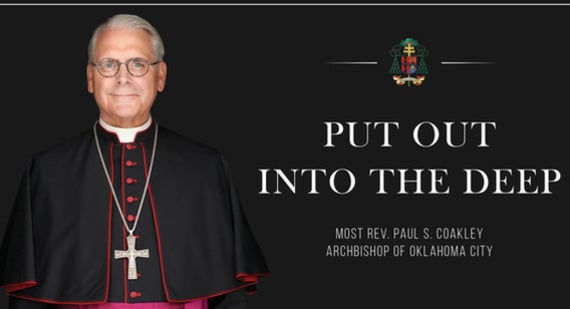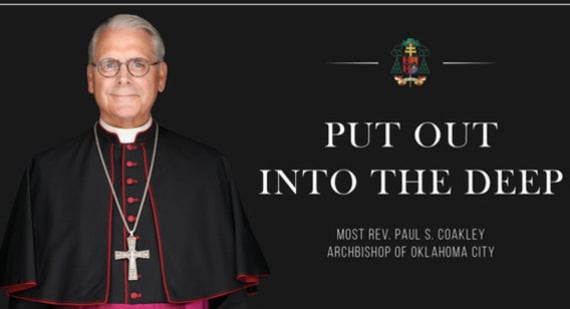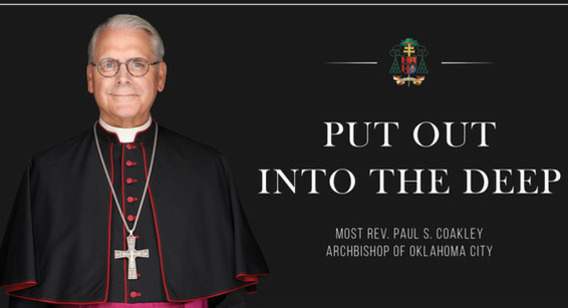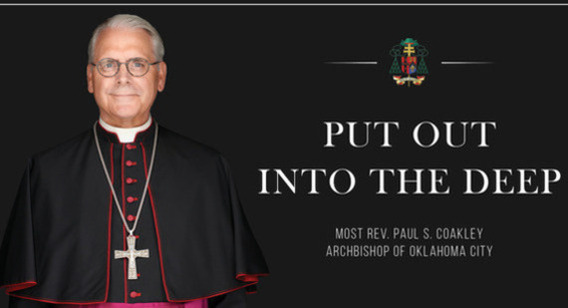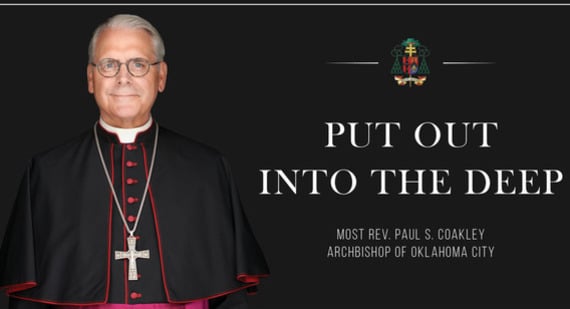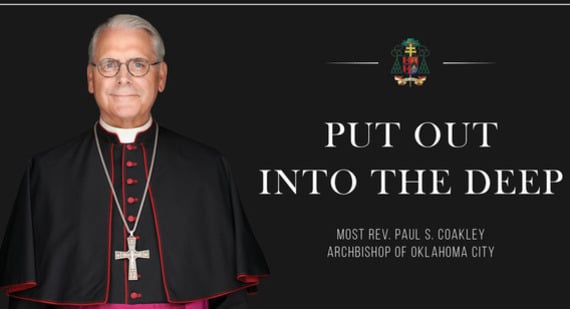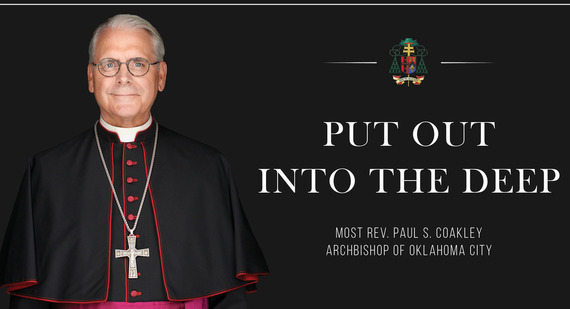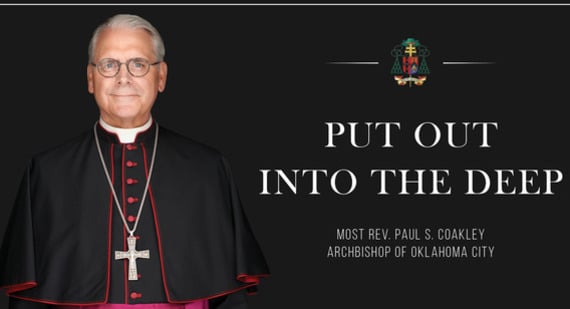News - Put Out Into the Deep RSS Feed
-
- All News
-
-
-
- Additional Materials (2)
- American Indian Catholic Outreach (3)
- Archbishop's Column (219)
- Articles (2467)
- Briefs (31)
- Campus Ministry (12)
- Español (245)
- Home (161)
- Homilies (1)
- Honor Dance (1)
- Jobs Box (18)
- Local (4)
- News (12)
- News & Events (3)
- Oklahoma Catholic Native Schools Project (7)
- Put Out Into the Deep (221)
- Put Out Into the Deep - Español (198)
- Sooner Catholic (32)
- St. Kateri Tekakwitha Spiritual Center of Oklahoma (3)
- Synod Session Schedule (1)
-
-
 March 5, 2026Since my installation as archbishop 15 years ago, I have not ceased praying for a new Pentecost leading to a New Evangelization in Oklahoma, a renewal that would stir in hearts a deeper encounter with the Word made flesh and a conscious decision to follow Jesus Christ.Read More
March 5, 2026Since my installation as archbishop 15 years ago, I have not ceased praying for a new Pentecost leading to a New Evangelization in Oklahoma, a renewal that would stir in hearts a deeper encounter with the Word made flesh and a conscious decision to follow Jesus Christ.Read More -
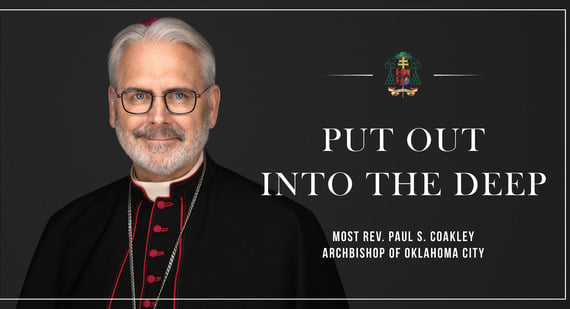 February 19, 2026As a young person growing up in the Catholic faith, confession was something I usually dreaded. Through high school and into college I would put it off for months at a time. As a young adult, and certainly through my priestly ministry, I have come to recognize confession as a great gift.Read More
February 19, 2026As a young person growing up in the Catholic faith, confession was something I usually dreaded. Through high school and into college I would put it off for months at a time. As a young adult, and certainly through my priestly ministry, I have come to recognize confession as a great gift.Read More -
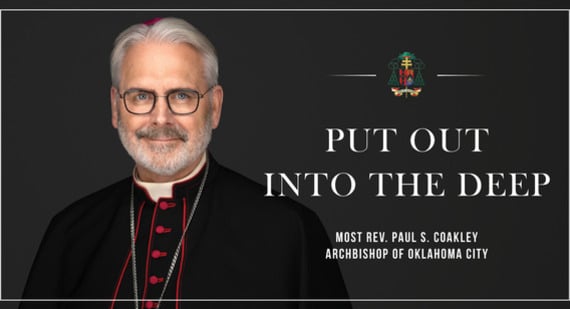 February 5, 2026We have begun our Lenten journey toward Easter. Since it’s a spiritual journey – a journey of faith – the destination is not a physical one. We won’t notice a change in geography or location when we arrive, but the journey is no less real. If we persevere in the journey, we will move from an old way of relating to God to a renewed one.Read More
February 5, 2026We have begun our Lenten journey toward Easter. Since it’s a spiritual journey – a journey of faith – the destination is not a physical one. We won’t notice a change in geography or location when we arrive, but the journey is no less real. If we persevere in the journey, we will move from an old way of relating to God to a renewed one.Read More -
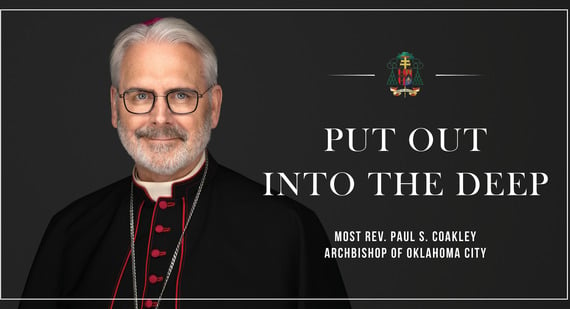 January 22, 2026During Catholic Schools Week from Jan. 25 to 31, we have an opportunity to reflect on and express our gratitude for the blessings of our Catholic schools in the Archdiocese of Oklahoma City.Read More
January 22, 2026During Catholic Schools Week from Jan. 25 to 31, we have an opportunity to reflect on and express our gratitude for the blessings of our Catholic schools in the Archdiocese of Oklahoma City.Read More -
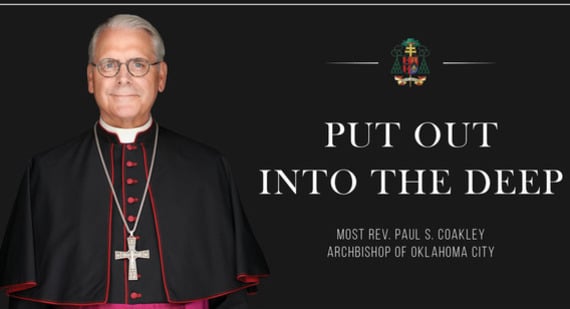 December 18, 2025As disciples of Jesus Christ, we may find ourselves somewhat conflicted at this time of year. We are in the final days of Advent and stand at the threshold of the Christmas season, which begins with the Solemnity of the Lord’s Nativity.Read More
December 18, 2025As disciples of Jesus Christ, we may find ourselves somewhat conflicted at this time of year. We are in the final days of Advent and stand at the threshold of the Christmas season, which begins with the Solemnity of the Lord’s Nativity.Read More -
December 4, 2025Even in new USCCB role, ‘I am committed to serving you loyally as your shepherd’Read More
-
November 20, 2025In October, I had the joy of leading our Catholic Foundation of Oklahoma pilgrimage to France and accompanying our 22 pilgrims. Pilgrimages are the occasion for a renewal of faith and a strengthening of hope. Hope is very much at the heart of this Jubilee year with is themed “Pilgrims of Hope.”Read More
-
November 5, 2025On Sunday, you may have noticed that the priest at your parish was not wearing green, the liturgical color prescribed for Ordinary Time. He was wearing white for the Feast of the Dedication of the Basilica of Saint John Lateran.Read More
-
October 23, 2025The liturgical calendar is the Church’s schedule of feasts and seasons that mark the rhythm of our life of faith. The cornerstone of the liturgical year is Sunday, the Lord’s Day, which is always a “little Easter.” We also have seasons such as Ordinary Time and days such as Ash Wednesday, which begins the penitential season of Lent. We have Advent and the Christmas season, and the feasts of the various saints we venerate.Read More
-
October 9, 2025On Oct. 22, we will celebrate the feast of Saint John Paul II. Many who are reading this column will have personal memories of his life, ministry and heroic witness.Read More
-
September 25, 2025It should not come as a surprise that priests need time away from their ministry to recharge from time to time. We see this even in the life of Jesus, who “went up on the mountain by himself to pray” (Mt 14:23) and who “spent the night in prayer to God” (Lk 6:12) after times of intense teaching and ministry.Read More
-
September 11, 2025In this Jubilee year, we are called to be “Pilgrims of Hope.” In the spirit of the great Jubilee tradition, we are invited to live this sacred time not merely as an anniversary to be observed, but as a season of grace – a time to restore what has been lost, to heal what is broken and to bear Christ’s light into a dark world that longs for his peace.Read More
-
August 26, 2025The world knew her as Mother Teresa of Calcutta. As a young student priest in Rome, I had the unexpected privilege of meeting her when I celebrated Mass for her sisters at a soup kitchen they operated near the Colosseum.Read More
-
August 14, 2025As hard as it is to believe, another summer has come and gone. As I look ahead to the promise of a new school year and the cooler weather to come, I find myself reflecting on all that God has done over these past few months.Read More
-
July 30, 2025On Aug. 7 we will celebrate the annual Archbishop’s Dinner for Seminarian Education at the National Cowboy & Western Heritage Museum.Read More
-
July 9, 2025Deep beneath the streets of Rome, a hidden network of pathways connects past and present, offering us a glimpse into the early Christian experience. The catacombs, those underground burial sites often used by the first believers as well as others, were more than just resting places for the dead, they became sanctuaries for the living.Read More
-
June 26, 2025Summer has arrived and students and staff in our archdiocesan Catholic schools are taking a much-needed and much-deserved break, given the success of the just-concluded school year.Read More
-
June 12, 2025Each time we celebrate the ordination of new priests we have an opportunity to reflect on the gift and mystery of the ordained priesthood in the life of the Church.Read More
-
May 29, 2025During this time of year, the powerful story of Pentecost stirs deeply within my heart, as I visit parishes across our vast archdiocese to confer the Sacrament of Confirmation.Read More
-
May 15, 2025During the recent conclave there was intense speculation (and even wagering) about who would step onto the balcony of Saint Peter’s Basilica after the white smoke cleared and solemn proclamation rang out, “Habemus Papam.”Read More
See More




